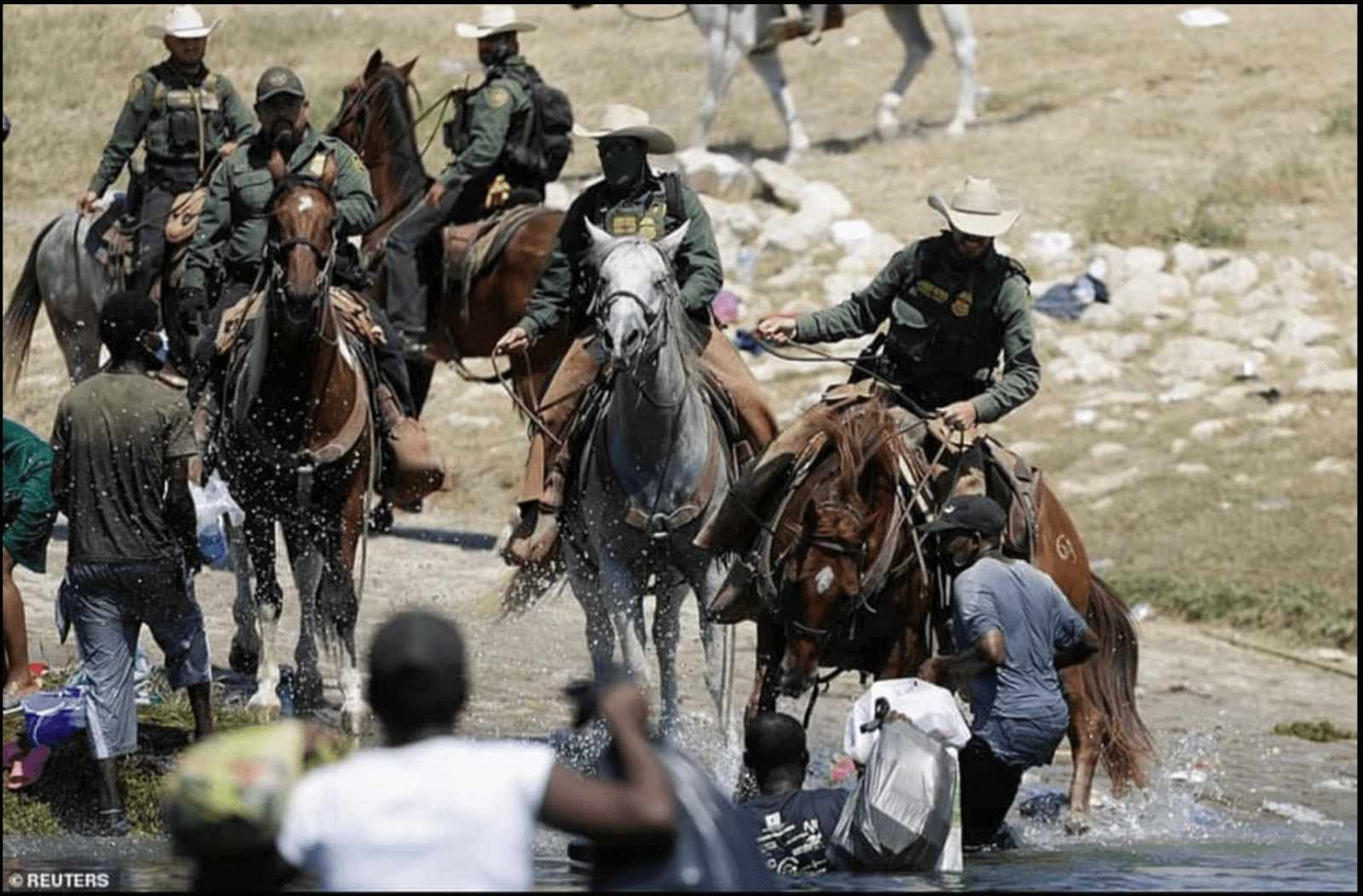President-elect Donald Trump has selected two key officials to spearhead his administration’s immigration enforcement initiatives, signaling a renewed commitment to his stringent border security agenda.
Announced Thursday night during a press briefing at Trump Tower, these high-profile appointments are expected to play a pivotal role in advancing Trump’s comprehensive immigration agenda, which includes implementing strict immigration controls, enhancing border security measures, and deporting millions of people who lack proper documentation to live in the United States. The appointments reflect Trump’s campaign promises to prioritize national security through robust immigration enforcement.
Trump nominated Rodney Scott, a seasoned U.S. Border Patrol veteran with an extensive background in border security operations, to lead Customs and Border Protection (CBP). Scott brings nearly 30 years of distinguished law enforcement and border security experience to the position, having served as Border Patrol chief under both the Trump and Biden administrations before retiring in 2021. His tenure spans multiple administrations, during which he developed expertise in managing complex border security challenges and implementing various immigration policies.
In addition, Trump named Caleb Vitello, a career Immigration and Customs Enforcement (ICE) official with a proven track record in law enforcement operations, as the acting director of ICE. Vitello, who has accumulated over 23 years of experience with ICE, is currently serving as the assistant director for the Office of Firearms and Tactical Programs. His extensive background in tactical operations and strategic planning has earned him recognition within the agency.
The president-elect emphasized the critical nature of these roles in fulfilling his administration’s ambitious immigration goals. “Rodney served nearly three decades in the Border Patrol, building vast experience and knowledge in law enforcement and border security,” Trump stated on his Truth Social platform, highlighting Scott’s comprehensive understanding of border dynamics and enforcement strategies. He described Vitello as possessing “exceptional leadership, extensive experience, and commitment to ICE’s mission,” adding that Vitello is well-equipped to enhance safety in communities impacted by crimes involving undocumented immigrants, particularly in areas with high concentrations of illegal border crossings.
These statements underline Trump’s unwavering focus on law enforcement and his detailed plans to tackle illegal immigration, a cornerstone of his political platform that has resonated strongly with his base supporters.
Rodney Scott’s tenure in Border Patrol highlights his significant involvement in several controversial Trump-era immigration policies that reshaped the landscape of border enforcement. These include:
- “Remain in Mexico” Policy: Officially known as the Migrant Protection Protocols, this comprehensive policy required asylum seekers to wait in Mexico while their claims were processed in U.S. courts, significantly altering the traditional asylum process.
- Title 42: A pandemic-era policy enabling swift expulsions of migrants on public health grounds, which became a crucial tool in border management during the COVID-19 crisis.
- Safe Third Country Agreements: These strategic deals aimed to redirect asylum seekers to other countries deemed “safe” for their claims, establishing new protocols for asylum processing.
Vitello, meanwhile, has been instrumental in strengthening ICE’s operations, particularly in firearms and tactical programs, which play a critical role in immigration enforcement and community safety. His expertise in developing and implementing tactical strategies has enhanced the agency’s effectiveness in conducting enforcement operations.
Trump’s strategic selections of Scott and Vitello align perfectly with his hard-line approach to immigration enforcement. These officials’ extensive track records and specialized expertise suggest they will be central to implementing comprehensive policies aimed at reducing undocumented immigration and prioritizing public safety. Trump’s continued emphasis on border security and law enforcement reflects his broader campaign promise to crack down on illegal immigration, though his approach notably focuses on immigrants from particular regions, especially those from Haiti and Central America.
Despite their impressive qualifications and experience, Scott and Vitello will face significant challenges in their new roles. These include navigating complex legal battles over immigration policies, managing intense public scrutiny of enforcement actions, and addressing operational issues within their respective agencies. Their success will largely depend on their ability to balance effective enforcement with legal compliance and public accountability.
Both CBP and ICE have faced intense scrutiny and remained at the epicenter of heated political debates, particularly regarding their approaches to migrant treatment, controversial family separation policies, and the implementation of various border security measures. The incoming administration faces the complex challenge of striking a delicate balance between maintaining robust enforcement protocols while ensuring humanitarian considerations are adequately addressed in their operational framework.
Trump’s strategic nominations have generated significant reactions across the political landscape, highlighting the deep divisions in immigration policy perspectives. Supporters of these appointments enthusiastically argue that selecting experienced officials like Scott and Vitello demonstrates an unwavering commitment to strengthening national security infrastructure and enhancing law enforcement capabilities. Critics, however, have voiced serious concerns about the potential implementation of overly aggressive enforcement policies that could disproportionately impact vulnerable migrant populations, including asylum seekers and families with mixed immigration status.
The ultimate impact of Scott’s and Vitello’s leadership on U.S. immigration policy will largely depend on their ability to navigate these multifaceted challenges while effectively implementing Trump’s ambitious agenda. Their extensive experience in their respective fields will be tested as they work to balance enforcement priorities with legal obligations and humanitarian considerations.
With Rodney Scott helming CBP and Caleb Vitello directing ICE, President-elect Trump is strategically positioning his administration to fulfill his campaign promises regarding immigration enforcement. However, immigration policy experts have expressed significant skepticism about the feasibility of Trump’s proposed immigration initiatives, suggesting that many of his ambitious policies may prove challenging, if not impossible, to implement within existing legal and operational frameworks. Several economic analysts and immigration specialists have warned that the United States could face substantial economic repercussions if Trump succeeds in implementing his proposed mass deportation policies targeting undocumented immigrants, potentially disrupting various sectors of the economy that rely heavily on immigrant labor.







